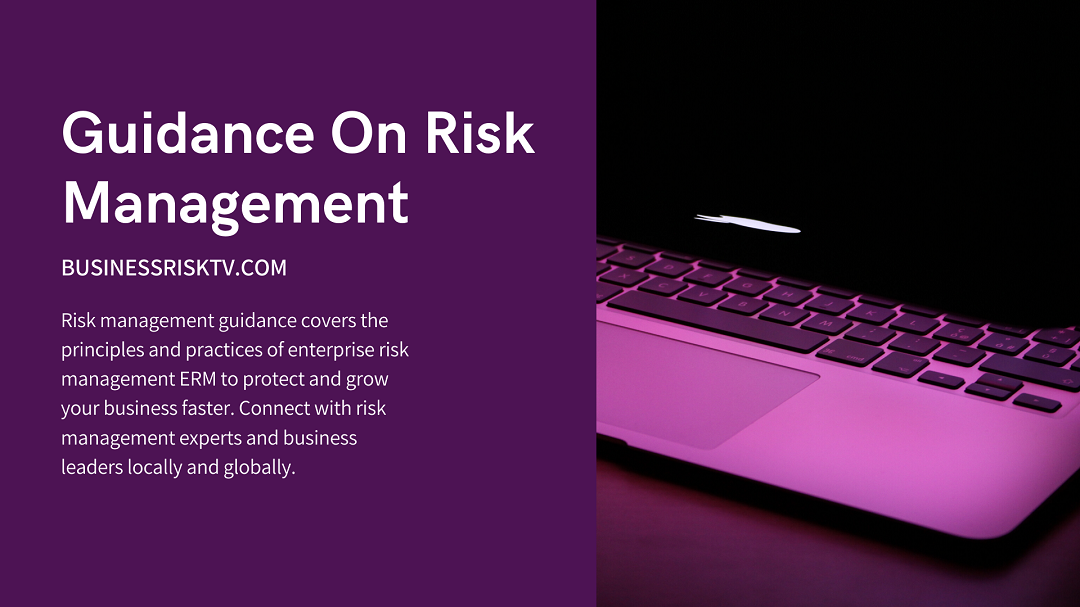What do you need to know about crypto?
Get the latest Cryptocurrency news opinions and reviews. Breaking crypto News trends and events. Crypto risk analysis discussion and training. Read crypto news articles and watch videos live and on demand.
The Travel Rule: Implications for Businesses and Investors in the UK
The Travel Rule (effective from 1st September 2023 in UK) is an international standard that requires financial institutions to collect and share information about cryptocurrency transfers. It was developed by the Financial Action Task Force (FATF), an intergovernmental organisation that sets standards for combating money laundering and terrorist financing.
The Travel Rule applies to all businesses that facilitate cryptocurrency transfers, including exchanges, wallets, and payment processors. In the UK, the Travel Rule will be enforced by the Financial Conduct Authority (FCA).
The Travel Rule requires businesses to collect the following information about each cryptocurrency transfer:
- The name and address of the sender
- The name and address of the recipient
- The amount of the transfer
- The date and time of the transfer
- The type of cryptocurrency being transferred
Businesses must also verify the identity of the sender and recipient before sharing this information.
The Travel Rule is designed to prevent the use of cryptocurrencies for money laundering and terrorist financing. By collecting and sharing information about cryptocurrency transfers, businesses can help to identify suspicious activity and track down criminals.
The Travel Rule will have a number of implications for businesses and investors in the UK.
For businesses
The Travel Rule will impose additional compliance requirements on businesses that facilitate cryptocurrency transfers. Businesses will need to implement systems and procedures to collect, verify, and share the required information. They will also need to train their staff on the Travel Rule and its requirements.
The Travel Rule is likely to increase the cost of doing business for cryptocurrency businesses. Businesses will need to invest in new technology and systems to comply with the rule. They may also need to hire additional staff to manage the compliance process.
The Travel Rule could also make it more difficult for businesses to onboard new customers. Businesses will need to collect more personal information from customers, which could deter some customers from using their services.
For investors
The Travel Rule could make it more difficult for investors to transfer cryptocurrencies between different wallets and exchanges. Businesses will need to verify the identity of both the sender and recipient of each cryptocurrency transfer, which could slow down the transfer process.
The Travel Rule could also make it more difficult for investors to remain anonymous. Businesses will be required to collect and share the name and address of each investor who makes a cryptocurrency transfer.
Overall, the Travel Rule is likely to have a significant impact on the cryptocurrency industry in the UK. Businesses will need to comply with the rule in order to avoid regulatory sanctions. Investors may also face some inconveniences as a result of the rule.
However, the Travel Rule is also seen as a necessary step to prevent the misuse of cryptocurrencies for criminal purposes. By collecting and sharing information about cryptocurrency transfers, businesses and law enforcement can work together to keep criminals out of the crypto ecosystem.
Conclusion
The Travel Rule is a complex and challenging new regulation for the cryptocurrency industry. However, it is a necessary step to protect the integrity of the market and prevent the misuse of cryptocurrencies for criminal purposes. Businesses and investors in the UK should be prepared for the impact of the Travel Rule and take steps to comply with its requirements.
In addition to the above, here are some other implications of the Travel Rule for businesses and investors in the UK:
- The Travel Rule could lead to increased regulation of the cryptocurrency industry. As governments around the world become more aware of the risks associated with cryptocurrencies, they may introduce new regulations to protect consumers and prevent financial crime.
- The Travel Rule could also make it more difficult for businesses to operate in the cryptocurrency industry. Businesses that do not comply with the Travel Rule could face fines or other penalties.
- The Travel Rule could also have a negative impact on the price of cryptocurrencies. As the regulatory burden on the industry increases, investors may become less willing to invest in cryptocurrencies.
Overall, the Travel Rule is a significant development for the cryptocurrency industry. It is important for businesses and investors to understand the implications of the rule and take steps to comply with its requirements.
London-based Jacobi Asset Management has listed Europe’s first spot bitcoin exchange-traded fund (ETF) on Euronext Amsterdam
Europe will see a spot bitcoin ETF traded before the U.S.. Europe’s First Spot Bitcoin ETF Lists in Amsterdam.
Implications for current cryptocurrencies of Financial Stability Board FSB recommendations for regulation of cryptos globally
The Financial Stability Board (FSB) is an international body that monitors and makes recommendations on the global financial system. In July 2023, the FSB published a set of high-level recommendations for the regulation, supervision, and oversight of crypto-asset activities and markets. These recommendations are designed to address the financial stability risks posed by crypto-assets, while also supporting responsible innovation.
The FSB’s recommendations have a number of implications for current cryptocurrencies. First, they will require crypto-asset issuers and service providers to be subject to the same regulatory requirements as traditional financial institutions. This includes requirements for capital adequacy, liquidity, risk management, and customer protection. Second, the recommendations will require crypto-asset exchanges and other trading platforms to be licensed and regulated. This will help to ensure that these platforms are operating in a safe and transparent manner. Third, the recommendations will call for increased cooperation between regulators across jurisdictions. This will help to prevent crypto-asset activities from being used to evade regulation or finance illegal activities.
The FSB’s recommendations are likely to have a significant impact on the crypto-asset industry. Some cryptocurrencies may not be able to meet the new regulatory requirements and may be forced to shut down. Others may be able to adapt to the new regulations, but they may face higher costs of compliance. In the long run, the FSB’s recommendations could lead to a more regulated and mature crypto-asset industry.
Will cryptos survive and prosper under FSB recommended regulations?
It is too early to say for sure whether cryptos will survive and prosper under the FSB’s recommended regulations. However, there are a number of factors that suggest that they could.
First, the crypto-asset industry is growing rapidly. In 2022, the market capitalization of all cryptocurrencies reached over $3 trillion. This growth is being driven by a number of factors, including the increasing acceptance of cryptos by businesses and consumers, and the development of new crypto-based products and services.
Second, the crypto-asset industry is becoming more sophisticated. There are now a number of large and well-funded crypto companies that are developing innovative products and services. These companies are also investing heavily in compliance and risk management.
Third, the regulatory environment for cryptos is evolving. The FSB’s recommendations are a significant step forward, but they are not the only regulatory initiatives that are underway. Governments and regulators around the world are working to develop a comprehensive framework for regulating cryptos.
In conclusion, the FSB’s recommended regulations are likely to have a significant impact on the crypto-asset industry. However, there are a number of factors that suggest that cryptos could survive and prosper under these regulations. The industry is growing rapidly, becoming more sophisticated, and facing a more favorable regulatory environment. Only time will tell whether cryptos will ultimately become a mainstream asset class, but the FSB’s recommendations have made it more likely that they will.
Here are some additional thoughts on the implications of the FSB’s recommendations for the future of cryptos:
- The recommendations could lead to a consolidation of the crypto-asset industry. Smaller and less well-funded crypto companies may struggle to meet the new regulatory requirements. This could lead to mergers and acquisitions, and a more concentrated industry.
- The recommendations could make it more difficult for new cryptos to enter the market. The regulatory requirements will be a barrier to entry for many new projects. This could lead to a slowdown in the innovation that has been a hallmark of the crypto-asset industry.
- The recommendations could make it more difficult for cryptos to be used for illegal activities. The increased regulation and oversight will make it more difficult for criminals to use cryptos to launder money or finance terrorism.
Overall, the FSB’s recommendations are a positive development for the crypto-asset industry. They will help to ensure that cryptos are used in a safe and responsible manner, and that they do not pose a risk to financial stability. However, the recommendations will also have some negative impacts on the industry, such as making it more difficult for new cryptos to enter the market. Only time will tell whether the positive impacts outweigh the negative impacts.
Nomura, Laser Digital and Dubai Marketplace For Crypto: Is The US Being Left Behind?
Keith Lewis 1 August 2023
Laser Digital, the digital assets subsidiary of Japanese bank Nomura has won an operating licence in Dubai, the latest in a number of mainstream financial institutions this year to enter the crypto sector.
Laser Digital received the licence from Dubai’s Virtual Asset Regulatory Authority, allowing it to offer crypto-related broker-dealer, management and investment services.
Ripple Wins Court Case Against SEC
In a landmark ruling on July 13, 2023, U.S. District Judge Analisa Torres granted summary judgment in favour of Ripple Labs, Inc. in the SEC’s lawsuit alleging that XRP, the company’s native cryptocurrency, is a security. The ruling is a major victory for Ripple and the cryptocurrency industry, and it could have far-reaching implications for the future of regulation in the space.
The SEC’s lawsuit against Ripple was filed in December 2020. The agency alleged that Ripple had violated federal securities laws by selling XRP to investors without registering it as a security. Ripple argued that XRP was not a security, but rather a currency or commodity.
In her ruling, Judge Torres found that the SEC had failed to prove that XRP was a security. She noted that the SEC’s definition of a security is “vague and open-ended,” and that the agency had not provided clear guidance on how to determine whether a cryptocurrency is a security.
Judge Torres also found that the SEC had failed to establish that Ripple had engaged in any fraudulent or deceptive conduct. She noted that Ripple had made it clear to investors that XRP was a high-risk investment, and that they should not invest more than they could afford to lose.
The ruling is a major victory for Ripple and the cryptocurrency industry. It could have far-reaching implications for the future of regulation in the space. The ruling could make it more difficult for the SEC to bring similar lawsuits against other cryptocurrency companies. It could also lead to the SEC issuing new guidance on how to determine whether a cryptocurrency is a security.
What will happen to XRP in 2023?
The ruling in the SEC vs. Ripple case is a major positive development for XRP. The price of XRP surged by more than 70% in the hours following the ruling. It is likely that the price of XRP will continue to rise in the coming months and years.
The ruling could also lead to increased adoption of XRP by businesses and financial institutions. XRP is already used by a number of companies, including MoneyGram and Western Union. The ruling could make it more attractive for other companies to use XRP, as it would no longer be subject to the same regulatory uncertainty.
Overall, the ruling in the SEC vs. Ripple case is a major positive development for XRP and the cryptocurrency industry. It could lead to increased adoption of XRP by businesses and financial institutions, and it could make it more difficult for the SEC to bring similar lawsuits against other cryptocurrency companies.
Key Takeaways
- The SEC vs. Ripple case was a landmark ruling that could have far-reaching implications for the future of regulation in the cryptocurrency industry.
- The ruling found that XRP is not a security, and that Ripple did not engage in any fraudulent or deceptive conduct.
- The ruling is a major victory for Ripple and the cryptocurrency industry, and it could lead to increased adoption of XRP by businesses and financial institutions.
- The ruling could also make it more difficult for the SEC to bring similar lawsuits against other cryptocurrency companies.
What are the next steps for Ripple?
Ripple has said that it plans to continue to develop XRP and its other products and services. The company also plans to continue to work with regulators around the world to ensure that XRP is used in a compliant manner.
The ruling in the SEC vs. Ripple case is a major step forward for Ripple. However, there are still challenges ahead. The company will need to continue to work with regulators and to build trust with the broader cryptocurrency community. If Ripple can successfully navigate these challenges, it is well-positioned to play a leading role in the future of the cryptocurrency industry.
Coinbase Sued by SEC for Selling Unregistered Securities
In June 2023, the U.S. Securities and Exchange Commission (SEC) filed a lawsuit against Coinbase, the largest cryptocurrency exchange in the United States. The SEC alleged that Coinbase had violated securities laws by offering and selling unregistered securities.
The SEC’s complaint specifically named 12 digital assets that it claimed Coinbase had offered and sold as unregistered securities. These assets included Bitcoin, Ethereum, Litecoin, and several other major cryptocurrencies.
The SEC argued that these assets were securities because they met the definition of an investment contract under the Howey Test. The Howey Test is a legal standard that defines an investment contract as an investment of money in a common enterprise with profits to come solely from the efforts of others.
The SEC alleged that Coinbase’s customers were investing money in a common enterprise by buying and selling cryptocurrencies on the platform. The SEC also alleged that Coinbase’s profits came solely from the efforts of others, namely the miners who process transactions and secure the blockchain networks on which cryptocurrencies are based.
Coinbase denied the SEC’s allegations and filed a motion to dismiss the lawsuit. The company argued that the digital assets it offered and sold were not securities because they were not investments in common enterprises. Coinbase also argued that the SEC had not given it fair notice that its activities were illegal.
The case is still pending in federal court. A trial date has not yet been set.
Is Coinbase in Trouble?
The SEC’s lawsuit against Coinbase is a significant development in the regulation of cryptocurrency exchanges. If the SEC is successful, it could set a precedent that would require other cryptocurrency exchanges to register with the SEC and comply with securities laws.
However, it is important to note that the case is still pending and Coinbase has denied the SEC’s allegations. It is possible that Coinbase will be able to win the case or reach a settlement with the SEC.
It is also worth noting that the SEC has not brought similar lawsuits against other major cryptocurrency exchanges. This suggests that the SEC may be targeting Coinbase specifically, perhaps because of its size or its high profile.
Only time will tell how the SEC’s lawsuit against Coinbase will be resolved. However, the case is a reminder that cryptocurrency exchanges are not immune from regulation and that they could face legal challenges in the future.
What are the Other Lawsuits Against Binance and Coinbase?
In addition to the SEC’s lawsuit against Coinbase, the company has also been sued by several private investors. These investors allege that they lost money by investing in cryptocurrencies on Coinbase’s platform.
The investors’ lawsuits allege that Coinbase failed to adequately disclose the risks associated with cryptocurrency investing. They also allege that Coinbase engaged in market manipulation and that it allowed fraudulent activity to take place on its platform.
Coinbase has denied the investors’ allegations and has filed motions to dismiss the lawsuits. The cases are still pending in federal court.
Binance, another major cryptocurrency exchange, has also been sued by the SEC and by private investors. The SEC’s lawsuit against Binance alleges that the company operated an unregistered securities exchange. The private investors’ lawsuits allege that Binance engaged in market manipulation and that it allowed fraudulent activity to take place on its platform.
Binance has denied the SEC’s allegations and has filed motions to dismiss the private investors’ lawsuits. The cases are still pending in federal court.
Is Coinbase Winning the Lawsuits?
It is too early to say whether Coinbase will win the lawsuits against it. The cases are still pending and it is possible that they could be resolved through settlement.
However, Coinbase has a strong legal team and it has denied all of the allegations against it. The company has also filed motions to dismiss the lawsuits, which suggests that it is confident in its chances of winning.
Only time will tell how the lawsuits against Coinbase will be resolved. However, the company has a good chance of prevailing in court.
Update 29 June 2023
Coinbase has filed papers asking a New York federal court to dismiss the SECs lawsuit that accuses the company of offering a dozen unregistered securities. Coinbase claimed the case should be thrown out in part because the digital assets it lists for trading are not “investment contracts”. Coinbase says the tokens it sells can’t be investment contracts because buyers and sellers are simply assets that are not tied to any contractual obligation.
Coinbase also claims that tokens that were once securities can cease to have that status as the blockchains that host them become increasingly decentralised.
Coinbase’s argument that its listed tokens are simply assets and not investment tokens has not been seriously tested in U.S. courts. The court case is unlikely to conclude until 2024.
Coinbase is also relying heavily on a so-called “fair notice defense” that is based around the constitutional principle the governments cannot initiate prosecutions if they have failed to let people know about the relevant law at issue.
Bitcoin: Going to Zero or a Million?
The future of Bitcoin is a hotly debated topic. Some believe that the cryptocurrency is a bubble that is destined to burst, while others believe that it is the future of money.
There are a number of factors that could lead to Bitcoin going to zero. One is if there is a widespread loss of confidence in the cryptocurrency. This could happen if there were a major security breach or if governments cracked down on Bitcoin.
Another possibility is that Bitcoin could be replaced by a newer, more efficient cryptocurrency. There are already a number of competing cryptocurrencies, and it is possible that one of these could eventually supplant Bitcoin.
However, there are also a number of factors that could lead to Bitcoin reaching a million dollars or more. One is if Bitcoin becomes more widely adopted as a form of payment. This is already starting to happen, as more and more businesses are beginning to accept Bitcoin.
Another possibility is that Bitcoin could become a store of value. This is because Bitcoin is limited in supply, and it is not subject to government interference. As a result, Bitcoin could become an attractive investment for people who are looking for a safe way to store their wealth.
So, which way will Bitcoin go? It is impossible to say for sure. However, the evidence suggests that Bitcoin is here to stay. The cryptocurrency has a number of unique properties that make it valuable, and it is likely to continue to grow in popularity in the years to come.
Arguments for Bitcoin Reaching a Million Dollars
There are a number of arguments that suggest that Bitcoin could reach a million dollars or more in the future. These arguments include:
- Limited supply: Bitcoin is a finite resource. There will only ever be 21 million bitcoins created, which means that the supply of Bitcoin cannot be inflated. This makes Bitcoin a valuable store of value, as it is not subject to the same inflationary pressures as fiat currencies.
- Growing demand: The demand for Bitcoin is growing rapidly. More and more people are buying Bitcoin as an investment, and as a way to pay for goods and services. This growing demand is likely to push the price of Bitcoin higher in the future.
- Adoption by institutions: A number of large institutions are starting to adopt Bitcoin. This includes investment firms, hedge funds, and even banks. This institutional adoption is likely to give Bitcoin more legitimacy and credibility, which could lead to even higher prices.
- Technological innovation: The Bitcoin network is constantly being improved. This includes the development of new features, such as the Lightning Network, which makes it faster and cheaper to send Bitcoin payments. These technological innovations are likely to make Bitcoin more user-friendly and accessible, which could lead to even more demand.
Arguments Against Bitcoin Reaching a Million Dollars
There are also a number of arguments that suggest that Bitcoin is unlikely to reach a million dollars. These arguments include:
- Volatility: Bitcoin is a very volatile asset. The price of Bitcoin has fluctuated wildly over the past few years. This volatility makes it difficult to predict the future price of Bitcoin, and it could make it a risky investment for some people.
- Regulatory risk: There is a risk that governments could crack down on Bitcoin. This could happen if governments become concerned about the potential for Bitcoin to be used for illegal activities. A regulatory crackdown could have a negative impact on the price of Bitcoin.
- Competition: There are a number of other cryptocurrencies that are competing with Bitcoin. These cryptocurrencies offer different features and benefits, and they could eventually supplant Bitcoin.
The future of Bitcoin is uncertain. However, the evidence suggests that Bitcoin is here to stay. The cryptocurrency has a number of unique properties that make it valuable, and it is likely to continue to grow in popularity in the years to come. Whether Bitcoin will reach a million dollars or more is anyone’s guess. However, the potential for significant gains is there, and this could make Bitcoin an attractive investment for some people.
What Do You Think?
What do you think the future holds for Bitcoin? Do you think it will reach a million dollars or more? Or do you think it is more likely to go to zero? Share your thoughts in the comments below.
More articles:
Will Bitcoin ever be worth $1 million?
How low will Bitcoin go in 2023?
What will Bitcoin be worth in 2025?
Is it possible for Bitcoin to go to zero?
Do they have to kill crypto to successfully adopt CBDCs?
Central bank digital currencies (CBDCs) are digital versions of fiat currencies that are issued and regulated by central banks. They are designed to offer the same benefits as traditional cash, such as anonymity and ease of use, while also providing some of the advantages of digital payments, such as speed and efficiency.
Cryptocurrencies, on the other hand, are decentralised digital currencies that are not issued or regulated by any central authority. They are based on blockchain technology, which is a secure and transparent distributed ledger system.
There is a growing debate about whether central banks need to kill crypto in order to successfully adopt CBDCs. Some argue that cryptocurrencies pose a threat to the financial system and that central banks need to take steps to ensure that they do not gain widespread adoption. Others argue that cryptocurrencies can actually complement CBDCs and that the two can coexist in the future.
Arguments for killing crypto
There are a number of arguments in favor of central banks killing crypto. One argument is that cryptocurrencies are a threat to financial stability. Cryptocurrencies are often volatile and can be used for illegal activities, such as money laundering and terrorist financing. This could lead to a loss of confidence in the financial system and could make it more difficult for central banks to manage monetary policy.
Another argument is that cryptocurrencies are a threat to consumer protection. Cryptocurrencies are often complex and difficult to understand. This could lead to consumers being scammed or losing money. Central banks have a responsibility to protect consumers and could do this by banning cryptocurrencies.
Arguments for coexisting with crypto
There are also a number of arguments in favour of central banks coexisting with crypto. One argument is that cryptocurrencies can actually complement CBDCs. For example, cryptocurrencies can be used for international payments, while CBDCs can be used for domestic payments. This could make it easier and cheaper for people to make payments across borders.
Another argument is that cryptocurrencies can promote innovation. The development of cryptocurrencies has led to the development of new technologies, such as blockchain. These technologies could be used to improve the efficiency and security of the financial system.
The debate about whether central banks need to kill crypto is likely to continue for some time. There are valid arguments on both sides of the issue. Ultimately, the decision of whether or not to kill crypto will be up to individual central banks. There are direct and indirect ways central banks and governments can try to kill crypto. However, the global marketplace suggests that central banks would need to do it globally and it is not clear how they would coordinate such action when it is difficult to get global agreement on anything. Furthermore, there is an argument that cryptos like Bitcoin provide a way to hold and retain value that is outside the reach and control of central banks and national governments.
However, it is important to note that the adoption of CBDCs is not a zero-sum game. It is possible for both CBDCs and cryptocurrencies to coexist. In fact, it is possible that the two could complement each other and help to improve the efficiency and security of the financial system. Attempts to kill crypto by central banks and national governments may raise questions as to the motivations of centres of power.
What are the tangible benefits to businesses of utilising cryptocurrencies?
Cryptocurrencies are digital or virtual tokens that use cryptography for security. A cryptocurrency is difficult to counterfeit because of this security feature. A defining feature of a cryptocurrency, and arguably its most endearing allure, is its organic nature. It is not issued by any central authority, rendering it theoretically immune to government interference or manipulation.
Cryptocurrencies use decentralised control as opposed to centralised digital currency and central banking systems. The decentralised control of each cryptocurrency works through a blockchain, which is a public transaction database, functioning as a distributed ledger. Bitcoin, first released as open-source software in 2009, is generally considered the first decentralised cryptocurrency. Since the release of bitcoin, over 4,000 altcoins (alternative variants of bitcoin, or other cryptocurrencies) have been created.
There are many potential benefits for businesses that adopt cryptocurrencies. Some of these benefits include:
- Reduced transaction fees: Cryptocurrency transactions typically have much lower fees than traditional bank transfers or credit card payments. This can save businesses money on processing costs.
- Faster transactions: Cryptocurrency transactions can be processed much faster than traditional bank transfers or credit card payments. This can improve customer satisfaction and make it easier for businesses to compete with online retailers.
- Global reach: Cryptocurrency transactions can be made anywhere in the world, without the need for a third-party intermediary. This can help businesses expand into new markets and reach new customers.
- Increased security: Cryptocurrency transactions are more secure than traditional bank transfers or credit card payments. This is because cryptocurrency transactions are encrypted and recorded on a public ledger.
- Reduced risk of fraud: Cryptocurrency transactions are less susceptible to fraud than traditional bank transfers or credit card payments. This is because cryptocurrency transactions are irreversible and cannot be disputed.
What is tangible about cryptocurrency?
The tangible benefits of cryptocurrency to businesses are the reduced transaction fees, faster transactions, global reach, increased security, and reduced risk of fraud. These benefits can help businesses save money, improve customer satisfaction, expand into new markets, and reduce the risk of fraud.
Is cryptocurrency tangible or intangible?
Cryptocurrency is a digital asset, which means that it is not a physical object. However, it does have tangible value. This value is derived from the fact that cryptocurrency can be used to purchase goods and services. It can also be used to store value and to invest.
Does cryptocurrency have any tangible value?
Yes, cryptocurrency has tangible value. This value is derived from the fact that cryptocurrency can be used to purchase goods and services. It can also be used to store value and to invest.
The value of cryptocurrency is determined by supply and demand. The supply of cryptocurrency is limited, as there is a finite number of bitcoins that will ever be created. The demand for cryptocurrency is growing, as more and more businesses and individuals are beginning to accept it as a form of payment.
As the demand for cryptocurrency continues to grow, its value is likely to increase. This makes cryptocurrency a good investment for those who are looking to protect their wealth from inflation and other economic risks.
The adoption of cryptocurrency by businesses can offer a number of tangible benefits, including reduced transaction fees, faster transactions, global reach, increased security, and reduced risk of fraud. These benefits can help businesses save money, improve customer satisfaction, expand into new markets, and reduce the risk of fraud.
As the use of cryptocurrency continues to grow, businesses that adopt it early may be able to gain a competitive advantage.
Will SEC attacks on likes of CoinBase and Binance impede or protect USA economy
Some people with high powers and responsibilities in USA are increasing their attack on crypto-sphere. What will it mean for the America and global economy?
As the rest of the world is opening its mind to the place of cryptocurrency in modern world America is doubling down on its suppression of cryptocurrency.
Opinion: Keith Lewis 8 June 2023
It is still too early to say whether the SEC’s attacks on cryptocurrency exchanges like Coinbase and Binance will impede or protect the US economy. However, there are a few potential outcomes that could occur.
One possibility is that the SEC’s actions will stifle innovation in the cryptocurrency industry. The SEC has been criticised for its heavy-handed approach to regulating cryptocurrency, and some fear that this could lead to businesses leaving the US or choosing not to launch their products here in the first place. This could have a negative impact on the US economy, as it could prevent the development of new technologies and businesses that could create jobs and boost economic growth.
Another possibility is that the SEC’s actions will protect investors from fraud and abuse. The cryptocurrency industry has been plagued by scams and other forms of fraud, and the SEC’s actions could help to protect investors from these risks. This could lead to increased investment in the cryptocurrency industry, which could have a positive impact on the US economy.
It is also possible that the SEC’s actions will have a mixed impact on the US economy. It is possible that the SEC’s actions will stifle innovation while also protecting investors. This could lead to a slower pace of economic growth, but it could also lead to a more stable and secure cryptocurrency industry.
Only time will tell what the ultimate impact of the SEC’s actions will be. However, it is clear that the SEC’s actions have the potential to have a significant impact on the US economy.
Here are some additional thoughts on the matter:
- The SEC’s actions could also lead to increased regulation of the cryptocurrency industry, which could make it more difficult for businesses to operate in this space. This could make it harder for the cryptocurrency industry to compete with traditional financial institutions, which could have a negative impact on the US economy.
- The SEC’s actions could also lead to increased public scrutiny of the cryptocurrency industry, which could make it more difficult for businesses to raise capital and attract customers. This could make it harder for the cryptocurrency industry to grow, which could have a negative impact on the US economy.
Overall, the SEC’s actions on cryptocurrency exchanges are a complex issue with the potential to have both positive and negative impacts on the US economy. It is important to monitor the situation closely and to assess the impact of the SEC’s actions as they unfold.
New Hong Kong Cryptocurrency Rules Take Effect on 1 June 2023
The Securities and Futures Commission (SFC) of Hong Kong has finalised rules to allow retail trading of cryptocurrencies from June 1, 2023. The new rules are designed to protect investors and promote the development of the virtual assets industry in Hong Kong.
Under the new rules, only licensed cryptocurrency exchanges will be allowed to offer retail trading services. Licensed exchanges will be subject to a number of requirements, including:
- They must have adequate financial resources and risk management systems.
- They must conduct due diligence on their customers.
- They must provide clear and concise information about the risks of investing in cryptocurrencies.
The SFC has also issued a number of guidance notes to help licensed exchanges comply with the new rules.
The new rules are expected to have a number of benefits for the virtual assets industry in Hong Kong. First, they will provide investors with greater confidence in the safety and security of their investments. Second, they will help to attract new investors to the industry. Third, they will help to promote the development of the industry in Hong Kong.
The new rules have been welcomed by the industry. The Hong Kong Blockchain Association said that the rules “will help to create a more stable and transparent environment for the development of the virtual assets industry in Hong Kong.”
The new rules are a significant step forward for the development of the virtual assets industry in Hong Kong. They will help to protect investors, promote the development of the industry, and attract new investors to Hong Kong.
What are the new rules?
The new rules are set out in the Securities and Futures Ordinance (SFO) and the Securities and Futures Commission (SFC) Handbook. The SFO provides the legal framework for the regulation of securities and futures in Hong Kong. The SFC Handbook provides guidance on how the SFO is to be interpreted and applied.
The key provisions of the new rules are as follows:
- Only licensed cryptocurrency exchanges will be allowed to offer retail trading services.
- Licensed exchanges will be subject to a number of requirements, including:
- They must have adequate financial resources and risk management systems.
- They must conduct due diligence on their customers.
- They must provide clear and concise information about the risks of investing in cryptocurrencies.
- The SFC has also issued a number of guidance notes to help licensed exchanges comply with the new rules.
What are the benefits of the new rules?
The new rules are expected to have a number of benefits for the virtual assets industry in Hong Kong. First, they will provide investors with greater confidence in the safety and security of their investments. Second, they will help to attract new investors to the industry. Third, they will help to promote the development of the industry in Hong Kong.
What are the challenges of the new rules?
The new rules will present a number of challenges for the virtual assets industry in Hong Kong. First, it will be a challenge for licensed exchanges to meet the requirements of the new rules. Second, it will be a challenge for the SFC to effectively regulate the industry.
What is the future of the virtual assets industry in Hong Kong?
The new rules are a significant step forward for the development of the virtual assets industry in Hong Kong. They will help to protect investors, promote the development of the industry, and attract new investors to Hong Kong. The industry is expected to continue to grow in the coming years.
What are the risks of investing in cryptocurrencies?
Cryptocurrencies are a new and volatile asset class. As such, there are a number of risks associated with investing in them. These risks include:
- The risk of loss: The value of cryptocurrencies can fluctuate wildly. As such, there is a risk that you could lose money if you invest in them.
- The risk of fraud: There have been a number of cases of fraud involving cryptocurrencies. As such, there is a risk that you could lose money if you invest in a fraudulent scheme.
- The risk of regulation: The regulatory landscape for cryptocurrencies is still evolving. As such, there is a risk that your investment could be affected by changes in regulation.
How can I protect myself from the risks of investing in cryptocurrencies?
There are a number of things you can do to protect yourself from the risks of investing in cryptocurrencies. These include:
- Do your research: Before you invest in any cryptocurrency, make sure you do your research and understand the risks involved.
- Invest only what you can afford to lose: Remember that the value of cryptocurrencies can fluctuate wildly. As such, you should only invest money that you can afford to lose.
- Use a reputable exchange: When you buy or sell cryptocurrencies, use a reputable.
Could these new rules open drive Bitcoin value up particularly as Hong Kong May give easier access to millions of Chinese investors?
It is possible that the new rules could drive Bitcoin value up, particularly as Hong Kong may give easier access to millions of Chinese investors.
The new rules will provide investors with greater confidence in the safety and security of their investments, which could lead to increased demand for Bitcoin. Additionally, the new rules will make it easier for Chinese investors to access Bitcoin, which could also lead to increased demand.
However, it is important to note that there are a number of factors that could affect the price of Bitcoin, including the overall economic climate, the performance of other cryptocurrencies, and regulatory changes. As such, it is impossible to say for sure whether the new rules will drive Bitcoin value up.
Here are some of the reasons why the new rules could drive Bitcoin value up:
- Increased investor confidence:The new rules will provide investors with greater confidence in the safety and security of their investments. This could lead to increased demand for Bitcoin, as investors will be more willing to put their money into it.
- Easier access for Chinese investors: The new rules will make it easier for Chinese investors to access Bitcoin. This could lead to increased demand for Bitcoin, as China is a major market for cryptocurrencies.
- Positive media attention: The new rules have been met with positive media attention. This could lead to increased awareness of Bitcoin, which could also lead to increased demand.
However, there are also some reasons why the new rules could not drive Bitcoin value up:
- Overall economic climate: The overall economic climate could have a negative impact on the price of Bitcoin. If the economy is doing poorly, investors may be less willing to invest in risky assets like Bitcoin.
- Performance of other cryptocurrencies: The performance of other cryptocurrencies could also have a negative impact on the price of Bitcoin. If other cryptocurrencies are performing better than Bitcoin, investors may be more likely to invest in them instead.
- Regulatory changes: Regulatory changes could also have a negative impact on the price of Bitcoin. If governments start to regulate cryptocurrencies more heavily, investors may be less willing to invest in them.
Overall, it is too early to say whether the new rules will drive Bitcoin value up. There are a number of factors that could affect the price of Bitcoin, and it is impossible to say for sure how these factors will play out.
Maximising Profits and Minimising Risks: Navigating the Cryptocurrency Landscape for UK Businesses
Cryptocurrency Risks and Opportunities
Cryptocurrencies, such as Bitcoin and Ethereum, have been gaining popularity in recent years, and businesses in the UK are starting to take notice. While these digital currencies offer a number of benefits, they also come with a number of risks and challenges. In this article, we will explore the threats and opportunities that cryptocurrencies present for businesses in the UK.
Threats
One of the biggest threats that businesses in the UK face when it comes to cryptocurrencies is their volatility. Cryptocurrencies are known for their fluctuations in value, which can be significant and happen quickly. This volatility makes it difficult for businesses to predict and plan for the future, as they may not know how much a particular cryptocurrency will be worth at any given time.
Another threat is the risk of hacking. Cryptocurrency exchanges and wallets are vulnerable to cyber attacks, and if a business stores large amounts of cryptocurrency, it could be at risk of losing it all in the event of a successful hack.
Regulatory risks are also present for businesses that deal with cryptocurrencies. The UK government has not yet created a comprehensive framework for the regulation of cryptocurrencies, which means that businesses may not be sure of their legal obligations or of how to comply with them. This could result in fines or other penalties if a business is found to be in violation of any laws or regulations.
Opportunities
Despite these threats, there are also a number of opportunities that cryptocurrencies present for businesses in the UK. One of the biggest opportunities is the ability to reach a global market. Cryptocurrencies are decentralised, meaning that they are not controlled by any government or institution. This makes them accessible to anyone with an internet connection, regardless of where they are located.
Another opportunity is the ability to reduce transaction costs. Traditional payment methods, such as credit cards, can be costly for businesses, as they often have to pay fees to the banks and other financial institutions that process the transactions. Cryptocurrencies, on the other hand, can be sent and received directly between parties, without the need for intermediaries, which can reduce costs significantly.
Innovation is another opportunity for businesses in the UK. Cryptocurrencies and blockchain technology have the potential to change the way that businesses operate and interact with their customers. For example, blockchain technology can be used to create secure and transparent supply chain management systems, which can improve efficiency and reduce costs.
Cryptocurrencies present a number of threats and opportunities for businesses in the UK. While the volatility and risk of hacking are significant concerns, the ability to reach a global market and reduce transaction costs are among the key opportunities that these digital currencies offer. Businesses that are considering incorporating cryptocurrencies into their operations should weigh the risks and benefits carefully, and should be prepared to adapt as the regulatory environment evolves.
Is money laundering the only reason nation states want to regulate and perhaps eliminate use of any unregulated crypto currency?
Are more USA crypto regulatory measures on their way? Could they be part of coordinated global clampdown on crypto?
There are bad actors using crypto to launder money. However, the biggest banks in the world have been regularly been fined for repeated widespread mismanagement that resulted in money being laundered by the traditional finance establishment. Is money laundering risk being used by the traditional finance establishment and national governments as an excuse to regulate crypto? Maybe even eliminate current crypto in favour of national CBDC or one international CBDC?
P
Are UK Banks Like Natwest Clamping Down on Cryptocurrency in September 2023?
In recent months, there has been growing concern that UK banks are clamping down on cryptocurrency. In particular, Natwest has come under fire for its new terms and conditions, which state that the bank will no longer allow customers to make payments to cryptocurrency exchanges.
This has led to speculation that Natwest is trying to prevent its customers from investing in cryptocurrency. However, the bank has denied this, saying that the new terms and conditions are simply a way of protecting customers from fraud and other risks.
So, what is the truth about UK banks and cryptocurrency? Are they really clamping down on it? And if so, why?
The Controversy Surrounding Cashless Society
One of the main reasons why banks are concerned about cryptocurrency is because it could pose a threat to the cashless society. In recent years, there has been a growing trend towards a cashless society, with more and more people using cards and online payments instead of cash.
Banks are keen to promote this trend, as it makes it easier for them to track customer spending and to collect fees. However, cryptocurrency could undermine the cashless society by providing an alternative way to make payments.
This is why some banks have been accused of trying to stifle the growth of cryptocurrency. For example, in 2017, Barclays banned its customers from buying cryptocurrency. And in 2018, HSBC said that it would not allow its customers to use its credit cards to buy cryptocurrency.
The Real Threat to Cryptocurrency
However, the real threat to cryptocurrency is not from banks. It is from governments.
Governments around the world are increasingly concerned about the potential risks posed by cryptocurrency. These risks include the use of cryptocurrency for money laundering and terrorist financing. Governments also risk losing control of the money – control the money control the people.
As a result, governments are starting to regulate cryptocurrency. In the UK, the Financial Conduct Authority (FCA) has issued guidance on cryptocurrency.
NatWest’s New Terms and Conditions
Natwest is introducing new terms and conditions that will have the effect of potentially restricting customer payments to cryptocurrency exchanges and payments into back accounts from cryptocurrency. These terms and conditions are designed to protect customers from fraud and other risks, but are also potentially worrying controls over people and businesses human rights.
They send a clear message to customers that Natwest does not approve of cryptocurrency. And this message is likely to be echoed by other banks.
The Future of Cryptocurrency
So, what does the future hold for cryptocurrency? It is difficult to say. However, it is clear that banks and governments are not keen on the idea.
This could make it difficult for cryptocurrency to achieve widespread global adoption. How difficult will depend on global governance.
Only time will tell what the future holds for cryptocurrency. However, one thing is for sure: the controversy surrounding it is not going away anytime soon
Cryptocurrency For Business Forum
Discuss the threats and opportunities for businesses in the UK if and when your business is ready to explore the protection and growth from cryptocurrencies.
Join our online forum to meetup online to inform your business decision-making.
#CryptoNews #CryptoAnalysis #CryptoOpinions #CryptoRiskReview #CryptoReport #CryptoForum
More Crypto news reviews and comments
Get Paid In Crypto On BusinessRiskTV Marketplace
As the world becomes more digitised, cryptocurrencies have become a popular form of payment for individuals and businesses alike. With the rise of cryptocurrencies like Bitcoin, Ethereum, and Litecoin, many businesses are now considering accepting these currencies as a form of payment. Additionally, some businesses are even paying their employees and contractors in cryptocurrencies. In this article, we will discuss how businesses can get paid in crypto through the BusinessRiskTV.com marketplace.
What is Cryptocurrency?
Cryptocurrency is a digital or virtual currency that uses cryptography for security. Cryptography is a technique for secure communication that is used to keep transactions secure and private. Cryptocurrencies use a decentralized system that allows for peer-to-peer transactions without the need for intermediaries like banks or governments.
One of the most popular cryptocurrencies is Bitcoin. Bitcoin was created in 2009 by an unknown person using the pseudonym Satoshi Nakamoto. Bitcoin is decentralised, meaning it is not controlled by any government or financial institution. Instead, it is maintained by a network of users who validate and record transactions on a public ledger called the blockchain.
Other popular cryptocurrencies include Ethereum, Litecoin, and Ripple. These cryptocurrencies are also decentralised and operate on similar blockchain technology.
Why Get Paid in Cryptocurrency?
There are several reasons why businesses might want to get paid in cryptocurrency. First, cryptocurrencies offer fast and secure transactions without the need for intermediaries. This means that businesses can receive payments instantly, without having to wait for banks or other financial institutions to process the transaction.
Second, cryptocurrencies offer lower transaction fees compared to traditional payment methods. This can save businesses money in the long run, especially if they receive a large volume of payments.
Finally, cryptocurrencies offer a level of anonymity and privacy that is not possible with traditional payment methods. This can be particularly useful for businesses that operate in industries where privacy is important, such as adult entertainment or gambling.
How to Get Paid in Cryptocurrency through BusinessRiskTV.com Marketplace
BusinessRiskTV.com Marketplace is an online platform that connects businesses with buyers and sellers around the world. The platform allows businesses to buy and sell goods and services in a secure and efficient manner. Additionally, the platform also supports cryptocurrency payments, making it easy for businesses to get paid in cryptocurrency.
To get started, businesses will need to sign up for a BusinessRiskTV.com Marketplace account. Once the account is created, businesses can list their products or services for sale on the platform. When a buyer makes a purchase, the seller will receive payment in the currency of their choice, including cryptocurrency.
To receive payments in cryptocurrency, businesses will need to provide their cryptocurrency wallet address to the buyer. The buyer will then send the payment to the provided wallet address. Once the payment is received, the seller can withdraw the funds to their bank account or continue to hold the cryptocurrency.
Benefits of Using BusinessRiskTV.com Marketplace
There are several benefits of using BusinessRiskTV.com Marketplace to get paid in cryptocurrency. First, the platform offers a secure and efficient way for businesses to sell their products or services. The platform uses advanced security measures to protect user data and prevent fraud.
Second, BusinessRiskTV.com Marketplace supports multiple payment options, including cryptocurrency. This makes it easy for businesses to receive payments in the currency of their choice.
Finally, BusinessRiskTV.com Marketplace offers a global audience, allowing businesses to reach buyers and sellers from around the world. This can help businesses expand their customer base and increase their revenue.
Potential Risks of Using Cryptocurrency
While there are many benefits to using cryptocurrency, there are also potential risks that businesses should be aware of. One of the main risks is the volatility of cryptocurrency prices. Cryptocurrency prices can fluctuate rapidly, which can result in large gains or losses for businesses.
Additionally, cryptocurrencies are not regulated by governments or financial institutions, which can make them vulnerable to fraud and hacking
Finally, businesses should be aware of the potential legal and tax implications of using cryptocurrency. Regulations regarding cryptocurrency vary from country to country, and businesses should consult with a legal or tax professional before accepting cryptocurrency payments.
Cryptocurrency is becoming an increasingly popular form of payment for businesses around the world. By accepting cryptocurrency payments, businesses can benefit from fast and secure transactions, lower transaction fees, and increased privacy. BusinessRiskTV.com Marketplace is an online platform that supports cryptocurrency payments, making it easy for businesses to get paid in cryptocurrency. However, businesses should also be aware of the potential risks and legal and tax implications of using cryptocurrency. By understanding these risks and taking appropriate measures, businesses can benefit from the advantages of cryptocurrency while minimising potential drawbacks.
Are Cryptos Securities?
The question of whether or not cryptocurrencies are securities has been debated for years. The Securities and Exchange Commission (SEC) has taken the position that most cryptocurrencies are securities, while the Commodity Futures Trading Commission (CFTC) has argued that they are commodities.
The SEC’s position is based on the Howey Test, a legal test that is used to determine whether an investment is a security. The Howey Test asks three questions:
- Is there an investment of money?
- Is there an expectation of profits from the investment?
- Are those profits to come from the efforts of a promoter or third party?
The SEC argues that cryptocurrencies meet all three criteria of the Howey Test. First, investors put money into cryptocurrencies. Second, investors expect to make a profit from their investment. Third, those profits are to come from the efforts of the developers of the cryptocurrency, who are working to create a new and innovative technology.
The CFTC, on the other hand, argues that cryptocurrencies are commodities. Commodities are defined as “any good, article, service, right, or interest in which there is an actual or potential commerce.” The CFTC argues that cryptocurrencies meet this definition because they are bought and sold on exchanges, and their prices are determined by supply and demand.
The debate over whether or not cryptocurrencies are securities is likely to continue for some time. The SEC and the CFTC are both powerful regulatory agencies, and they have different views on how to regulate cryptocurrencies. It is possible that the courts will eventually have to decide the issue.
In the meantime, investors should be aware of the risks associated with investing in cryptocurrencies. Cryptocurrencies are a new and volatile asset class, and they are not regulated by the government in the same way that stocks and bonds are. As a result, investors could lose all of their money if they invest in cryptocurrencies.
Are Cryptocurrencies a Security, Commodity, or Currency?
The classification of cryptocurrencies is a complex and evolving issue. Some argue that cryptocurrencies are securities, while others believe that they are commodities or currencies. The classification of cryptocurrencies has important implications for regulation and taxation.
Securities
A security is an investment contract that provides the investor with an expectation of profits. Securities are regulated by the Securities and Exchange Commission (SEC). The SEC has stated that it believes that many cryptocurrencies are securities.
Commodities
A commodity is a good or service that is bought and sold on an exchange. Commodities are regulated by the Commodity Futures Trading Commission (CFTC). The CFTC has not yet taken a position on whether or not cryptocurrencies are commodities.
Currencies
A currency is a medium of exchange that is used to purchase goods and services. Currencies are not regulated by the SEC or the CFTC.
The classification of cryptocurrencies is still up for debate. However, it is important to understand the potential implications of different classifications. For example, if cryptocurrencies are classified as securities, then they would be subject to the same regulations as stocks and bonds. This could make it more difficult for businesses to raise money through cryptocurrency ICOs.
The Future of Crypto Regulation
The regulation of cryptocurrencies is a rapidly evolving area of law. The SEC, the CFTC, and other regulators are still working to develop a comprehensive framework for regulating cryptocurrencies.
It is likely that the regulation of cryptocurrencies will continue to evolve in the coming years. As cryptocurrencies become more popular, regulators will need to develop new rules and regulations to protect investors and ensure market integrity.
How to Invest in Cryptocurrencies Safely
If you are considering investing in cryptocurrencies, it is important to do your research and understand the risks involved. Here are a few tips for investing in cryptocurrencies safely:
- Only invest money that you can afford to lose.
- Do your research and understand the risks involved in investing in cryptocurrencies.
- Only invest in cryptocurrencies through reputable exchanges.
- Use strong passwords and two-factor authentication to protect your accounts.
- Be aware of scams and fraudulent activity.
By following these tips, you can help to protect yourself when investing in cryptocurrencies.
More archived crypto articles videos and reviews
Is Ethereum a security?
Is Cardano a security or commodity?
Crypto News

























